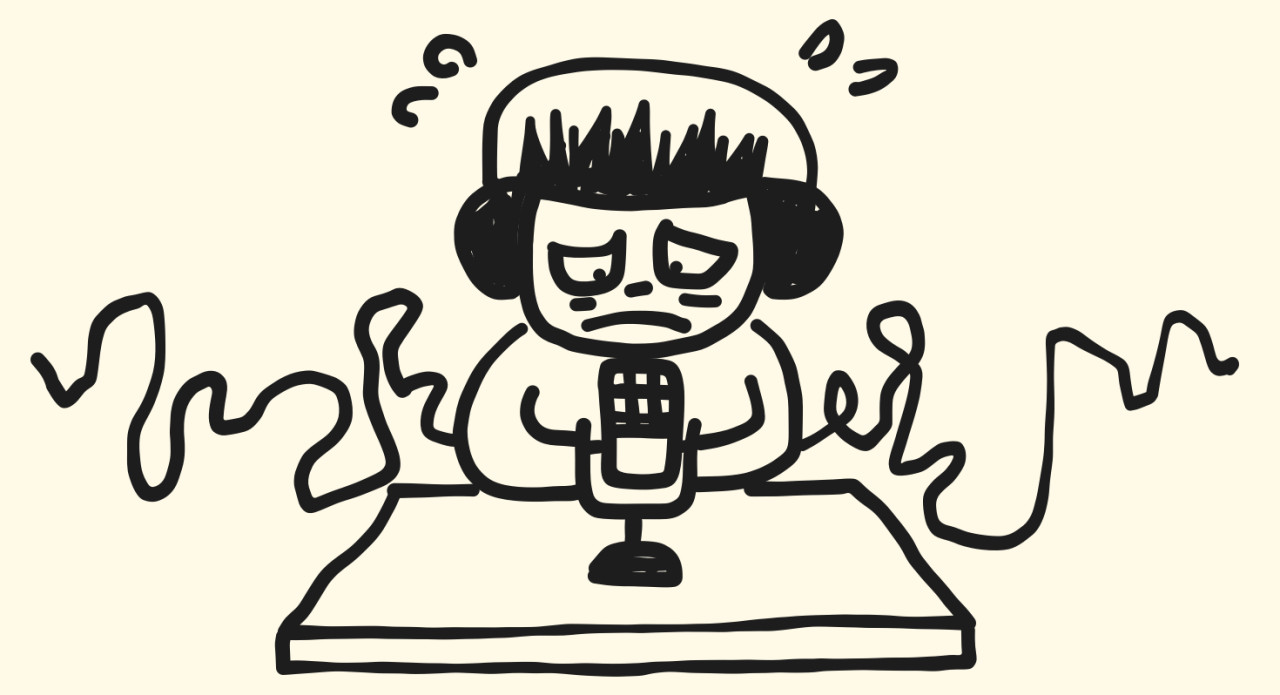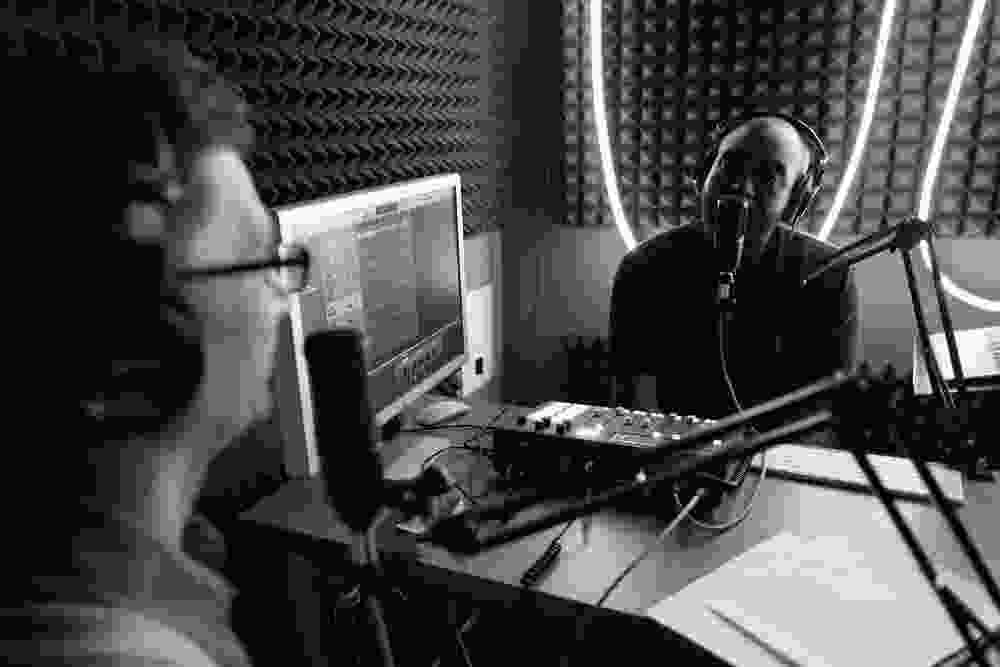How to deal with burnout as a podcaster
Podcaster burnout is real – here's how to respond to it
Transistor Team
"I'm coming up on my 50th episode of recording, and I'm suffering a bit of burnout," a podcaster recently shared on Reddit. "I'm working hard, trying to book guests, thinking about episode structure, and carrying the weight of it all... I need to figure out if it's even worth continuing."

If this resonates with you, you're not alone. The relentless demands of creating and publishing episodes, while managing expectations—yours, your listeners', advertisers', and partners'—can be overwhelming. After working with thousands of podcasters at Transistor, I've observed that burnout typically manifests in two distinct ways.
Energy burnout: Running at 110% for too long, maxing out your recording schedule and creative capacity until you have nothing left.
Motivation burnout: When the perceived reward no longer justifies the effort you're putting into your show.
Let's explore each type in detail.
Energy burnout
This is the most common definition of burnout: when you've exceeded your physical and mental capacity.
This often happens when you've committed to an unsustainable pace: saying yes to every interview request, filling every moment with podcast-related tasks, and treating each aspect of your show as urgent. From researching topics to booking guests, recording, editing, writing show notes, and managing social media - it's easy to get caught in this cycle of constant doing.
The first step in dealing with energy burnout is simple: take a break. Don't make yourself physically or mentally sick trying to maintain your podcast. Step back, restore balance to your life, and give yourself permission to rest.
Once you've had time to recover, look for ways to make your show more sustainable:
Adjust your release schedule (switching from weekly to bi-weekly episodes)
Batch record episodes when your energy is high
Simplify your format to require less production time
Delegate tasks that drain you (like editing or show notes)
Learn to say "no" to non-essential podcast commitments
For year, I've been try to practice the Okinawan principle of leaving some margin, and only using 80% of my available resources. This ensures that I don't overextend myself, and that I have capacity for dealing with unexpected opportunities or crises.
Motivation burnout
But there's a second, less obvious type of burnout that's equally dangerous. My friend Matt Wensing identified this when he said:
"Burnout is nature's way of telling you that the perceived reward isn't worth the effort."
This one's particularly sneaky for podcasters because it can happen even when your show isn't demanding crazy hours. You could take a week off from recording and still feel burned out if your podcasting goals feel too far off, too unattainable, or too abstract.
Maybe you started your show dreaming of landing major sponsors, but after 50 episodes you're still not seeing meaningful revenue. Or perhaps you hoped to build a massive audience, but your download numbers have plateaued at a level that feels disappointing. Sometimes it's the isolation that gets to you – talking into a microphone week after week without visible feedback, wondering if anyone's actually listening or caring about what you're creating.
My friend Aaron Francis, who's also a podcaster, puts it this way:
"Working hard does not lead to burnout, but the lack of hope leads to burnout. If you're working really hard for something that you don't believe will pay off, it's super easy to lose motivation. But if you believe that the thing you're working on will have a payoff, the amount of work almost doesn't matter."
So if you're experiencing motivational burnout, it's time to pause and ask yourself: "Am I still motivated to head in the direction I'm going?"
If the answer is yes, then break those far-off podcasting dreams into nearer-term milestones. Instead of focusing on "getting 10,000 downloads per episode someday," create smaller, achievable, goals. These might be "book one great guest this month," "get my first listener email," "reach 100 subscribers," or "complete my first month of consistent publishing."
But if the answer is no – if you've lost belief that your current path will lead somewhere meaningful – then maybe it's time to pivot. Change your show format, shift your target audience, or even start fresh with a completely different concept. There's no shame in admitting that your original vision isn't working and needs adjustment.
I've seen this with my own podcasting journey. When I can see clear progress toward something I believe in – like sharing Transistor's startup journey on the Build your SaaS show – I can work long hours without feeling drained. But when I'm grinding away on a show that feel disconnected from meaningful outcomes, even light work feels exhausting.
Get clear on your boundaries and your motivation
The tricky thing about burnout is that both types can feel similar on the surface. You're tired, unmotivated, and questioning whether to continue. But the solutions are different, so it's worth taking time to diagnose which one you're experiencing.
If you're dealing with energy burnout, you need boundaries. Create more margin in your podcasting schedule. Build buffer episodes, batch your recording sessions, and resist the urge to fill every moment with podcast tasks. Learn to say no to commitments that don't serve your core mission.
If you're dealing with motivation burnout, you need clarity. Reconnect with your "why" and ask yourself what originally excited you about starting a show. Does that still energize you? If not, it might be time to evolve your show's direction or format.
Sometimes you might be dealing with both types simultaneously. That's okay too. Start with energy management – it's hard to engineer motivation when you're running on empty.
Remember, podcasting is a marathon, not a sprint. The podcasts that last are the ones that find a sustainable rhythm. Your audience would rather have a consistent show from a healthy, energized host than a sporadic show from someone who's burning out.
Burnout is nature's way of saying: "It's time to stop and assess what's working and what isn't." The goal isn't to eliminate all stress from podcasting – some creative tension is good. The goal is to build a show that enhances your life rather than consuming it.
